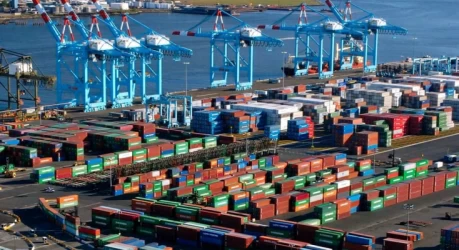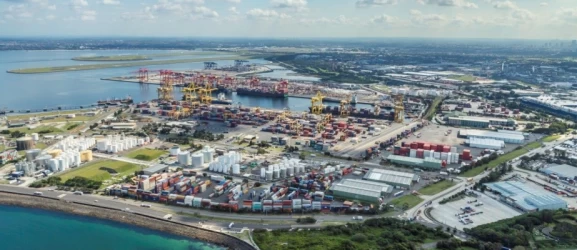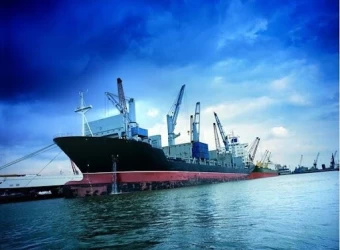Guide to trade with Jordan, sea freight
Jordan, strategically located in the Middle East, serves as a critical trade hub connecting Asia, Europe, and Africa. Despite its limited natural resources, Jordan has developed into a strong and diversified economy, with international trade playing a pivotal role. The country's policies of open trade and investment have made it an attractive partner for businesses globally. This comprehensive guide will explore the opportunities for trade with Jordan and delve into the importance of maritime transportation for the country’s economy.
Overview of Jordan's Economy
Jordan's economy, though resource-constrained—particularly in oil and gas—has a diverse industrial and service sector. Key industries include pharmaceuticals, chemicals, textiles, and food production. Jordan's economy relies heavily on trade and foreign investment, with major trading partners including neighboring Arab states, the European Union, the United States, China, and Turkey.
The country has been proactive in signing free trade agreements (FTAs) with various nations to boost trade. Jordan’s membership in the World Trade Organization (WTO) and its bilateral FTAs, including the Jordan-U.S. Free Trade Agreement, have helped bolster its international trade standing.
Key Benefits of Trading with Jordan
- Strategic Location: Jordan’s position at the crossroads of major markets in the Middle East, particularly Saudi Arabia, Iraq, and Syria, makes it an ideal hub for trade. It also has access to the Red Sea through the Port of Aqaba, facilitating maritime trade.
- Political and Economic Stability: Compared to many countries in the region, Jordan enjoys relative political stability. This factor plays a crucial role in attracting foreign investment and trade.
- Investment Incentives: Jordan offers numerous incentives to foreign investors, including tax breaks, free zone trade areas, and simplified administrative processes. Free trade zones in Jordan allow for the manufacturing and export of goods without the imposition of customs duties.
- Advanced Services Sector: Jordan's services sector, particularly in finance, logistics, and banking, is one of the most advanced in the region, facilitating seamless trade operations.
Maritime Transportation in Jordan
1. Aqaba Port: Jordan’s Gateway to the World
The Port of Aqaba is Jordan's only seaport and plays an essential role in its maritime transportation network. Located on the northern tip of the Red Sea, Aqaba provides a vital outlet for the country's trade, connecting Jordan to major markets in Europe, Africa, and Asia. The port serves as a key logistics and transportation hub, allowing goods to be imported and exported via sea routes efficiently.
2. Benefits of Maritime Transportation in Jordan
- Cost-Effective: Maritime transportation offers a lower-cost alternative for shipping large volumes of goods compared to air transport. For bulky and heavy goods, sea freight is often the most economical choice.
- High Capacity: Ships can transport large quantities of cargo at once, which increases efficiency and reduces overall shipping costs.
- Access to Global Markets: Through Aqaba, Jordan enjoys access to a wide network of maritime routes, enabling trade with global markets across Europe, Asia, and Africa.
3. Aqaba Port Infrastructure
Aqaba's port is equipped with modern infrastructure, including container terminals, bulk cargo handling facilities, and RoRo (roll-on/roll-off) terminals for vehicle transportation. These advanced facilities ensure the smooth handling of goods for both importers and exporters.
In recent years, Jordan has invested heavily in upgrading Aqaba’s infrastructure, which has boosted its capacity to handle larger vessels and increased its throughput. The port has become one of the main logistical hubs in the region, providing a crucial link between Jordan and international markets.
Customs Procedures and Import/Export Regulations in Jordan
To successfully trade with Jordan, understanding the customs procedures and regulations governing imports and exports is crucial. Some key aspects include:
- Required Documentation: Key documents for customs clearance in Jordan include the commercial invoice, bill of lading, certificate of origin, and shipping documents.
- Customs Duties: Jordan applies a tariff schedule aligned with WTO standards, with different rates depending on the product category. Goods traded within Jordan’s free zones are generally exempt from customs duties.
- Special Requirements: Some products, such as pharmaceuticals, food, and agricultural products, require additional permits or certifications before they can be imported or exported.
Sea Freight to Jordan: Key Shipping Routes
1. Major Sea Routes to Aqaba
The Port of Aqaba is connected to various global maritime routes, with direct shipping lines to major ports across the Mediterranean, Europe, and Southeast Asia. These sea routes, especially through the Suez Canal, enable efficient trade with key global markets.
The most commonly used sea routes include:
- Red Sea to Mediterranean via the Suez Canal, linking Jordan with Europe and North Africa.
- Red Sea to Southeast Asia through the Indian Ocean, facilitating trade with China, India, and other Asian markets.
2. Key Maritime Shipping Companies Operating in Jordan
Several international shipping companies provide services to and from Aqaba. These include Maersk Line, Mediterranean Shipping Company (MSC), and CMA CGM. These companies offer container, bulk cargo, and RoRo services, ensuring flexibility for different types of shipments.
Challenges of Trading with Jordan
- Limited Natural Resources: Jordan's reliance on imported energy and raw materials can increase the cost of production and trade. Businesses may face higher operational expenses due to the need for imported energy resources like oil and gas.
- Regional Competition: Jordan competes with neighboring countries like Saudi Arabia and the United Arab Emirates, which have more substantial infrastructure and resource advantages, creating a competitive trading environment.
- Customs and Legal Complexities: While Jordan has made progress in streamlining its trade processes, foreign businesses may still face hurdles when navigating customs regulations and compliance requirements.
Opportunities for Foreign Investors and Traders
- Free Zones and Investment Incentives: Jordan has established several free zones, such as the Aqaba Special Economic Zone, offering attractive tax incentives, duty exemptions, and simplified administrative processes for businesses.
- Growing Sectors: The pharmaceuticals, ICT (Information and Communication Technology), and renewable energy sectors in Jordan offer significant opportunities for foreign investors and traders, driven by government policies and global demand.
- Partnerships with International Trade Organizations: Jordan's involvement in international trade agreements and its integration into global trade networks present valuable opportunities for foreign businesses seeking to enter the Jordanian market.
Conclusion
Jordan’s strategic location, political stability, and advanced logistics infrastructure make it an attractive destination for international trade. The Port of Aqaba serves as a critical gateway for maritime transportation, connecting Jordan to global markets. By understanding the customs regulations, leveraging the country’s free trade zones, and utilizing the robust maritime infrastructure, businesses can unlock the full potential of trading with Jordan.
If you have any specific questions or need further assistance, feel free to ask!











